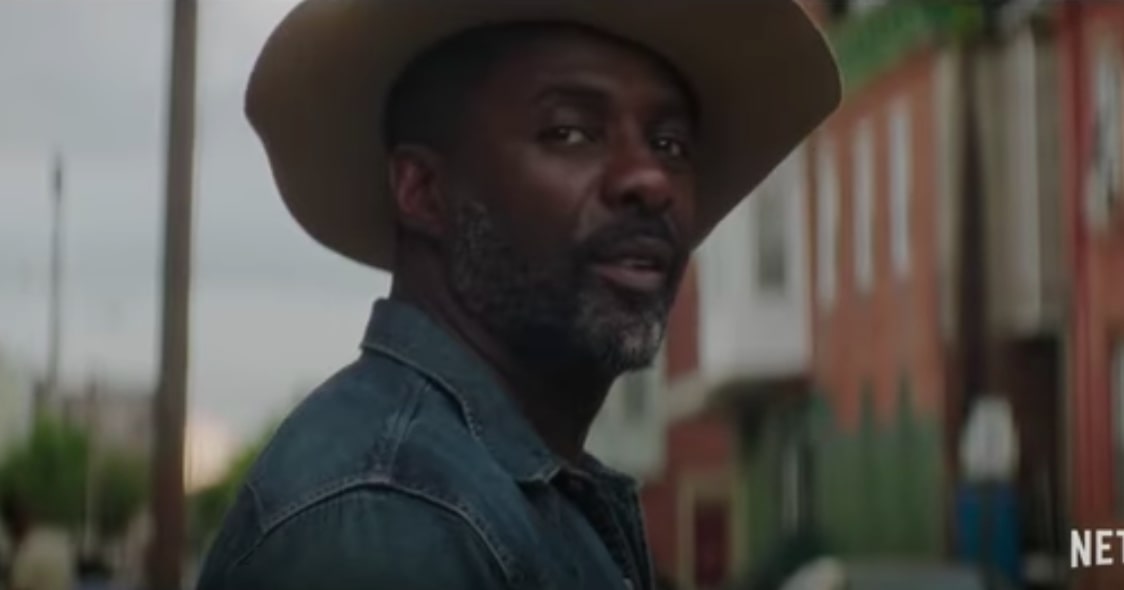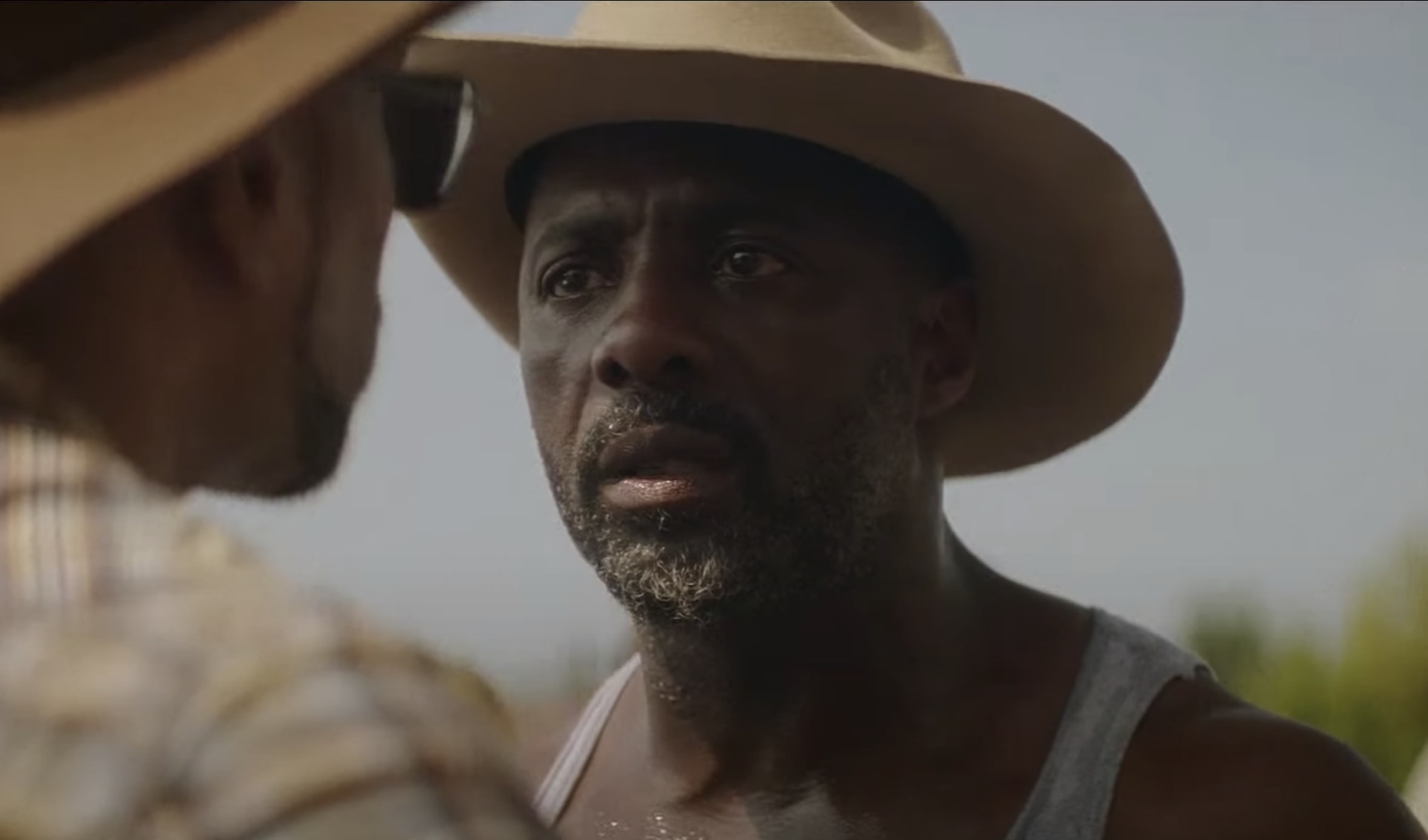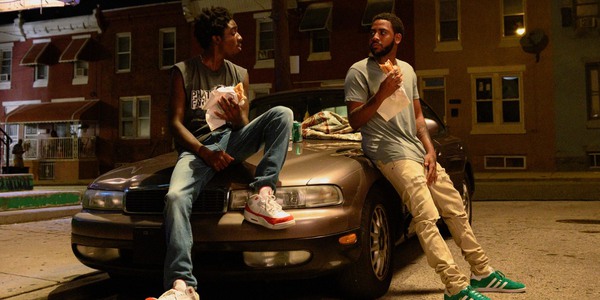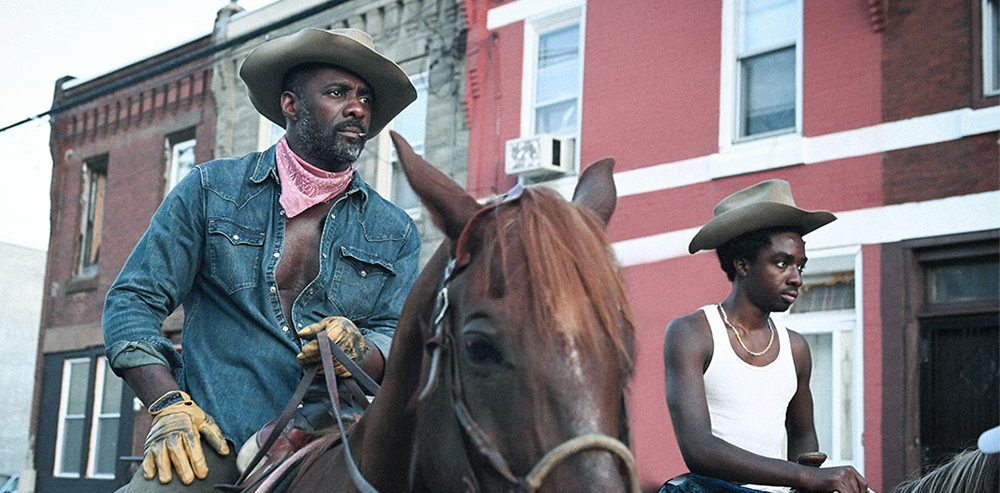The title of director Ricky Staub’s debut feature film, ‘Concrete Cowboy,’ seems like an oxymoron. The mental image that conjures up every time we hear the word “cowboy” hardly ever involves an urban setting, and Hollywood has done its share to reinforce those notions. The film doesn’t necessarily urge you to give them up. Instead, it candidly depicts the thriving subculture that has come up around horse riding in cities and how it helps disenfranchised youths find their way back to normalcy.
The cinematic adaptation of author Greg Neri’s 2011 novel ‘Ghetto Cowboy,’ the film is predominantly set in North Philadelphia and weaves a fictionalized story around one of the city’s most important historical institutions, the Fletcher Street Urban Riding Club. Here is everything you need to know about the ending of the film. SPOILERS AHEAD.
Concrete Cowboy Plot synopsis
Cole (Caleb McLaughlin) is a troubled kid. He has been expelled from multiple schools for fighting and unruly behavior. His mother, Amahle (Liz Priestley), knows towards which direction her son is heading and is terrified of it. She has spent most of her life in the urban, impoverished neighborhoods and has seen countless promising young men perish because of their gradual descent to criminal life. As a last and desperate resort, Amahle packs all her son’s clothes in two garbage bags and takes him to Philadelphia, where Cole’s father, Harp (Idris Elba), resides.

Amahle leaves Cole there, hoping that a paternal influence will bring some positive changes to the boy. However, she doesn’t realize that changes like that can only come when you have gone down the wrong path far enough to experience the horrors of your choices. Harp is intricately associated with the Fletcher Street stables, where he has become a father figure in the lives of local problematic children, helping them stay away from life in the streets. Yet, he doesn’t exactly know how to be a father to his own son.
It is the first time he sees Cole in years, and the intermediate separation has created a barrier between them that neither seems to be willing to cross at first. However, that begins to change when Cole develops a personal bond with a yet-to-be-tamed horse named Boo. Almost immediately, Cole and his father discover common ground. Meanwhile, after arriving in Philadelphia, Cole reunites with Smush (Jharrel Jerome), who imposes himself as an older sibling in Cole’s life. Driven by his own desire to escape his circumstances, Smush drags a reluctant Cole into the world of crime.
Concrete Cowboy Ending: How Does the Relationship between Harp and Cole Evolve throughout the Film?
By Harp’s own admission, he used to be what Smush is now when he was younger, filled with dreams of a better life and desperate to find a way to achieve it. When Amahle became pregnant, he was facing multiple criminal charges. But Harp evaded capture because he wanted to meet his son at least once. Eventually, Amahle spoke to the authorities, which led to his arrest. Despite this, Harp never held Amahle responsible for his incarceration, fully accepting the responsibilities of his own actions.

Harp named his son after the legendary saxophonist John Coltrane, hoping that Cole, like his namesake, would make something out of himself without his father’s help. But things rarely turn out the way we want. When Amahle leaves Cole with him, Harp doesn’t know how to have a natural relationship with his son or even take care of him. It takes a torrential outpour of emotions from both Harp and Cole about halfway into the movie to bring about a drastic shift in their dynamics.
Cole vents his pent-up anger and frustration at his father, justifiably holding him accountable for what Cole perceives as neglect and apathy. In response, Harp does the only thing he can do at that moment: he tells the truth about his past and his fears. Through this exchange, they both find catharsis. Their relationship is alleviated to a whole different level after Cole tames Boo and begins riding. In doing so, he immerses himself into the world to which his father belongs.
How Does Smush’s Death Affect Cole?
Smush rushes into Cole’s life when the latter feels the most vulnerable. Seemingly abandoned by his mother and experiencing apparent indifference from his father, Cole eagerly clutches on to the first source of kindness and understanding. Smush sees him as a peer, with whose help he plans to find a better way of life. In a convoluted way, it brings a sense of purpose into Cole’s life. So, despite his father telling him to sever all ties with Smush, Cole becomes his partner in drug dealing.

It is revealed that Smush used to be part of the riding club as well before he went back to the streets. For Harp, Smush is one of the greatest failures in what he has been doing with the riding club. The fact that he still keeps Smush’s horse in his home shows how much he was affected when Smush stopped riding altogether. But a part of Harp still holds on to the hope that Smush will return to the club one day.
Although Smush’s promises of partnership and glorious plans of owning a ranch together seduce Cole, Smush doesn’t have any malice behind it. He ardently believes in them himself to such an extent that it ultimately gets him killed. The local drug lord comes after Smush almost inevitably for encroaching on his business and orders a hit. It is carried out by a teenager not much older than Cole. As the murder happens right in front of him, the shock and terror that Cole feels enables him to leave that life for good.
What Does the Future Hold for the Riders of the Fletcher Street Stables?
The Fletcher Street Stables have been on the crosshairs of Philadelphia city officials since the publication of an article that alleged that the horses there were malnourished. Over the years, development and gentrification have forced several stables across Philadelphia to shut down. Leroy (Clifford “Method Man” Smith), a police officer as well as a concrete cowboy, has warned Harp and the others multiple times that the city will eventually come for them.

However, the cowboys didn’t really listen. So, when it does happen, and the city officials shut down the Fletcher Street Stables and take the horses away, it leaves the cowboys inconsolable. With Leroy’s help, Harp and Cole get all their horses back. When the city demolishes the stables, the cowboys recognize that its absence will not change who they are. Echoing Smush’s words, Harp declares, “Home ain’t a place. It’s a fam.”
In the closing moments of the film, Cole has a joyous reunion with his mother. For now, the cowboys keep the horses at their respective homes. The notes before the credits reveal that the city has begun developing on the plot where the stables used to be, and the club is looking for new land. The club has been there for over a hundred years and has changed the lives of generations of young men and women and will likely continue to do so in the years to come, even if it doesn’t receive outside support.
Read More: Is Concrete Cowboy Based on a True Story?


You must be logged in to post a comment.